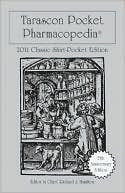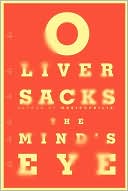Immunology and Evolution of Infectious Disease
From HIV to influenza, the battle between infectious agents and the immune system is at the heart of disease. Knowledge of how and why parasites vary to escape recognition by the immune system is central to vaccine design, the control of epidemics, and our fundamental understanding of parasite ecology and evolution. As the first comprehensive synthesis of parasite variation at the molecular, population, and evolutionary levels, this book is essential reading for students and researchers...
Search in google:
"Steven Frank provides us with a profound insight into the Darwinian evolutionary dynamics between parasite and host, told from an immunological slant. It is essential reading to understand why infections cause disease."—Robin A. Weiss, Fellow of the Royal Society, Wohl Virion Centre, University College London"This book is a real gem. Very readable, it is a teaching and research text that will be widely adopted at both the undergraduate and graduate levels. It will also provide a wonderful source of ideas for researchers working on infectious diseases, population ecology, and evolutionary biology."—Roy Anderson, Fellow of the Royal Society, Imperial College, London"This is an extremely stimulating and hugely ambitious book. It distils key essentials from the ever increasing avalanche of largely undigested molecular and immunological data to answer important questions about the natural history of antigenic variation in an evolutionary context. Frank gives us the missing part of the field: what it all means. His synthesis cuts across large areas of modern biology and is just the sort of thing the field needs."—Andrew Read, University of Edinburgh Charles R. M. Bangham - Trends in Ecology & Evolution Frank's book, short and clearly written, can be read through with ease, and it will serve as an excellent introduction to infectious disease dynamics for final-year undergraduates and research students, and for those who attempt to bridge the gulf between mathematics and biology. It will be particularly useful as a stimulus for new research. . . . [F]or an integrated and digestible account of the role of antigenic variation in the immunology and evolution of microparasites, this book has few rivals, and is highly recommended.
Acknowledgments1Introduction3Pt. IBackground2Vertebrate Immunity133Benefits of Antigenic Variation22Pt. IIMolecular Processes4Specificity and Cross-Reactivity335Generative Mechanisms57Pt. IIIIndividual Interactions6Immunodominance within Hosts737Parasite Escape within Hosts93Pt. IVPopulation Consequences8Genetic Variability of Hosts1119Immunological Variability of Hosts12410Genetic Structure of Parasite Populations148Pt. VStudying Evolution11Classifications by Antigenicity and Phylogeny17512Experimental Evolution: Foot-and-Mouth Disease Virus18813Experimental Evolution: Influenza20514Experimental Evolution: CTL Escape23015Measuring Selection with Population Samples24616Recap of Some Interesting Problems265References269Author Index313Subject Index337
\ Trends in Ecology & EvolutionFrank's book, short and clearly written, can be read through with ease, and it will serve as an excellent introduction to infectious disease dynamics for final-year undergraduates and research students, and for those who attempt to bridge the gulf between mathematics and biology. It will be particularly useful as a stimulus for new research. . . . [F]or an integrated and digestible account of the role of antigenic variation in the immunology and evolution of microparasites, this book has few rivals, and is highly recommended.\ — Charles R. M. Bangham\ \ \ \ \ Trends in Ecology and Evolution\ Frank's book, short and clearly written, can be read through with ease, and it will serve as an excellent introduction to infectious disease dynamics for final-year undergraduates and research students, and for those who attempt to bridge the gulf between mathematics and biology. It will be particularly useful as a stimulus for new research. . . . [F]or an integrated and digestible account of the role of antigenic variation in the immunology and evolution of microparasites, this book has few rivals, and is highly recommended.\ — Charles R. M. Bangham\ \ \ Nature\ - Franziska Michor and Martin A. Nowak\ [This] is a rich source of ideas for scientists working in immunology and molecular biology as well as evolution. . . . Newcomers are offered a comprehensive introduction to basic questions of immunology, as well as a synthesis that cuts across large areas of biology. Specialists will find detailed discussions of specific infectious agents from a highly original, evolutionary perspective, and inspiration for future research.\ \ \ \ \ Trends in Ecology and Evolution\ - Charles R.M. Bangham\ Frank's book, short and clearly written, can be read through with ease, and it will serve as an excellent introduction to infectious disease dynamics for final-year undergraduates and research students, and for those who attempt to bridge the gulf between mathematics and biology. It will be particularly useful as a stimulus for new research. . . . [F]or an integrated and digestible account of the role of antigenic variation in the immunology and evolution of microparasites, this book has few rivals, and is highly recommended.\ \ \ \ \ Quarterly Review of Biology\ - Allison P. Galvani\ This is the first volume to comprehensively survey the integration of evolution, epidemiology, ecology, genetics, and immunology of pathogen and host population. As such, it is a valuable resource for both students and researchers.\ \ \ \ \ Science\ - Paul Schmid-Hempel\ This book is definitely worth reading. Frank provides a thought-provoking and timely agenda of research questions in evolutionary immunology and parasitology that will undoubtedly stay relevant for many years to come.\ \ \ \ \ Evolution\ - J.J. Bull and Dieter Ebert\ This book should be read by anyone interested in the evolution of infectious disease, as well as by those interested in molecular evolution or in experimental evolution. . . . It will appeal broadly.\ \ \ \ \ Quarterly Review of Biology\ - Alison P. Galvani\ A valuable resource for both students and researchers. . . . This stimulating book makes an important contribution by bridging the gap between immunology and epidemiology.\ \ \ \ \ Trends in Ecology and Evolution\ - Charles R. M. Bangham\ \ Frank's book, short and clearly written, can be read through with ease, and it will serve as an excellent introduction to infectious disease dynamics for final-year undergraduates and research students, and for those who attempt to bridge the gulf between mathematics and biology. It will be particularly useful as a stimulus for new research. . . . [F]or an integrated and digestible account of the role of antigenic variation in the immunology and evolution of microparasites, this book has few rivals, and is highly recommended.\ \ \ \ \ Nature[This] is a rich source of ideas for scientists working in immunology and molecular biology as well as evolution. . . . Newcomers are offered a comprehensive introduction to basic questions of immunology, as well as a synthesis that cuts across large areas of biology. Specialists will find detailed discussions of specific infectious agents from a highly original, evolutionary perspective, and inspiration for future research.\ — Franziska Michor and Martin A. Nowak\ \ \ \ \ Quarterly Review of BiologyA valuable resource for both students and researchers. . . . This stimulating book makes an important contribution by bridging the gap between immunology and epidemiology.\ — Alison P. Galvani\ \ \ \ \ ScienceThis book is definitely worth reading. Frank provides a thought-provoking and timely agenda of research questions in evolutionary immunology and parasitology that will undoubtedly stay relevant for many years to come.\ — Paul Schmid-Hempel\ \ \ \ \ EvolutionThis book should be read by anyone interested in the evolution of infectious disease, as well as by those interested in molecular evolution or in experimental evolution. . . . It will appeal broadly.\ — J.J. Bull and Dieter Ebert\ \








